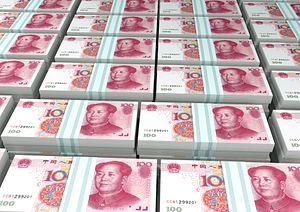On November 11, 2015, Lü Xiwen, deputy secretary of the Beijing Municipal Party Committee, was detained as a suspect for serious violations of party discipline. With her capture, along with the beginning of investigation against Vice Mayor Ai Baojun of Shanghai one day earlier, the Central Commission for Discipline Inspection (CCDI) has managed to uncover corrupt officials of vice-ministerial rank (i.e., “tigers”) in all 31 provincial-level units in mainland China.
From the outside, these corrupt officials are indistinguishable from those who have not been investigated. While in office, the accused all demonstrated their determination to combat corruption and sent stern, public warnings to their relatives and friends not to take advantage of their public offices for private gains.
While he was party secretary of Dalian, for example, Bo Xilai (one of the first “tigers” to fall) often reminded his staff to get things done while being clean. His successor, Sun Chunlan, publicly pledged to follow in the footsteps of her predecessor (who had moved on to become governor of Liaoning) both in words and in deeds. Bo has since been sentenced to life in prison for embezzlement, corruption, and abuse of power, while Sun has managed to be “clean” so far.
That an outsider cannot make a clear distinction between a corrupt official and a clean official is probably due to the fact that these corrupt officials are two-faced. In public, they are upright and clean; in private, they are corrupt and dirty. They say one thing in public and do something else in private.
Former Governor Su Shulin of Fujian published an article in the People’s Daily on August 18, 2015 praising the great example of Xi Jinping in managing his family members and relatives and criticizing the bad examples of Zhou Yongkang, Bo Xilai, Xu Caihou, Ling Jihua, and Su Rong. Now Su Shulin himself is being investigated for corruption.
And it was only after having listened to the central decision on expelling former Party Secretary Zhou Benshun of Hebei from the Party and removing him from public offices on October 19 that Hebei party officials decided to recognize their former boss’ true face and quickly denounced him.
Clearly, the key is to know that corrupt officials in China are double-faced and keep up a façade as a public cover. But how then are outsiders to know which officials are corrupt? Of course it’s ridiculous to denounce CCP leaders as double-faced as soon as they make a public statement against corruption.
It is the prerogative of party disciplinary officials, especially those of the CCDI, to uncover the true faces of corrupt cadres. In the eyes of these disciplinary officials, party cadres and their leaders are all potential suspects of disciplinary violations. The name of one of the former Politburo Standing Committee members in charge of the anti-corruption effort says it all: Wu Guanzheng (in Chinese, a homophone for “no officials are clean”). To save the party from the ruins of corrupt officials, these disciplinary officials will do everything to discover the bad apples among the good ones.
As a result, don’t be surprised if those who are denouncing others as corrupt today end up in the headlines tomorrow as fallen “tigers.”
































